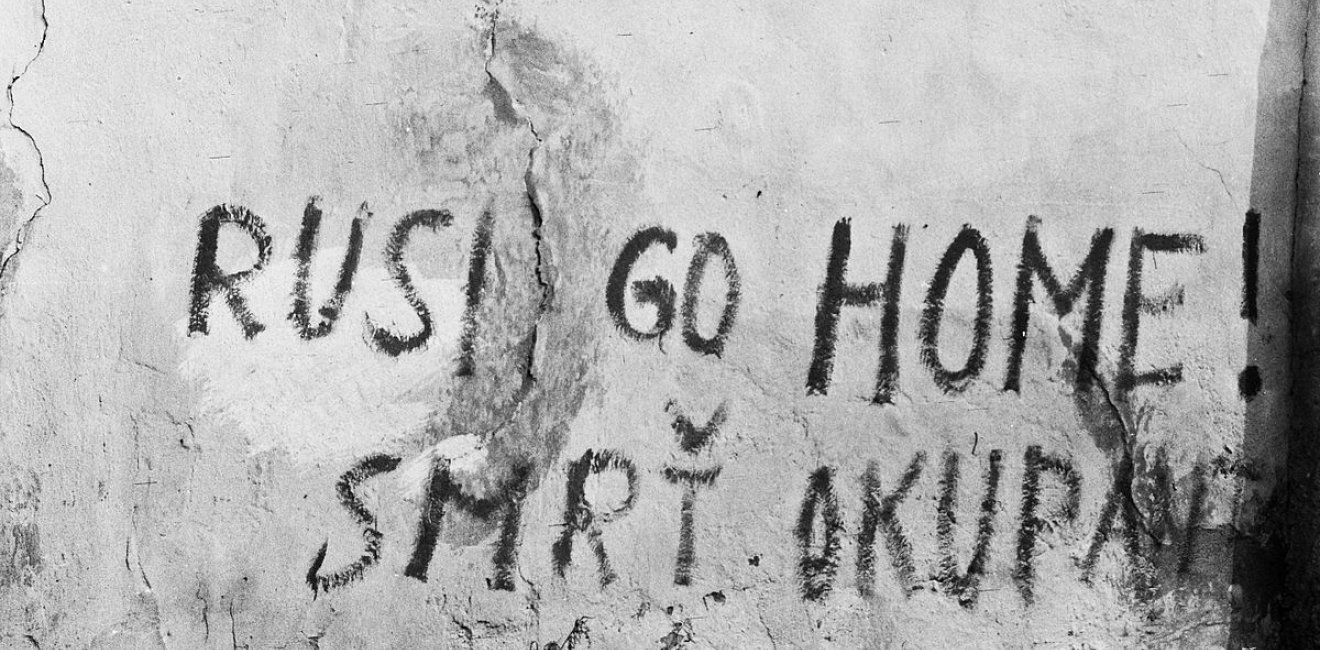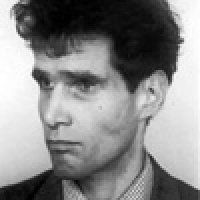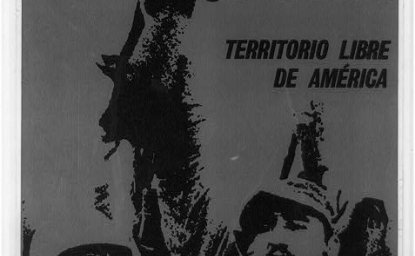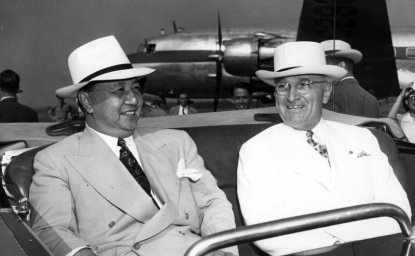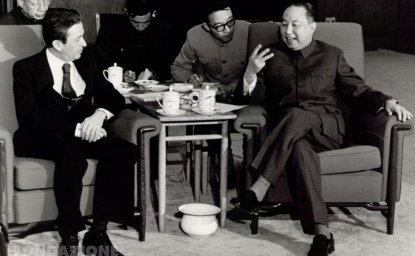Fifty years ago tomorrow, an act of great moral courage occurred against the backdrop of the Cold War. On August 25, 1968, four days after hundreds of thousands of Soviet and Warsaw Pact troops poured into Czechoslovakia to crush the reforms of the Prague Spring, eight Soviet citizens went into Moscow’s Red Square and held up banners denouncing the invasion and apologizing to the people of Czechoslovakia.
In a particularly memorable sight, two of the demonstrators, Pavel Litvinov and Vadim Delaunay, held up a banner proclaiming “For your freedom and ours!” — linking the cause of freedom in Czechoslovakia and the Soviet Union.
Within a few minutes, several thuggish enforcers from the KGB state security organs rushed over, tore down the banners and a small Czechoslovak flag, and beat the demonstrators. The eight of them knew in advance that the KGB would brutally disperse their protest and arrest them, but they decided they would risk their own safety to underscore their shame at their country’s behavior.
This show of moral defiance came at great cost to the protesters. The “crime” of protesting the invasion was regarded as so serious that the head of the KGB, Yuri Andropov, dealt with the matter personally and reported to the ruling Politburo of the Soviet Communist Party about the criminal investigation and trial. Andropov warned the Politburo that the demonstration was a sign that pro-democracy dissidents “have once again stepped up their malevolent activity.” The only way to “neutralize this threat,” he stressed, was to mete out severe punishments.
The Moscow court obediently followed the instructions of the KGB and Politburo in cracking down harshly. Two of the protesters, Delaunay and Vladimir Dremlyuga, were sentenced to lengthy terms in forced-labor camps in Siberia. Another, Viktor Fainberg, who had been beaten so severely by the KGB that he was deemed unfit to be brought into the courtroom, was sent to a psychiatric prison notorious for its cruelty. Three of the others — Litvinov, Larisa Bogoraz, and Konstantin Babitskii — were forced into prolonged exile in remote, barren regions of the country. A seventh protester, Natal’ya Gorbanevskaya, was initially released because she had recently given birth, but she was re-arrested in late 1969 for her involvement in the August 1968 demonstration and eventually sentenced to a harsh term in a psychiatric prison inn Kazan.
Because the protest was so quickly suppressed and nothing about it was mentioned in the Soviet press, almost no Soviet citizens had any inkling that such an event had occurred. Even within the small community of Soviet dissidents, some were unaware that a protest had taken place. Not until word of it gradually spread through samizdat and word of mouth, spurred on by Gorbanevskaya’s detailed firsthand account of the incident, did the protesters’ actions gain somewhat greater notice. But it was not until the end of the 1980s, amid the far-reaching liberalization in the USSR introduced by Mikhail Gorbachev, that the August 25 demonstration could be openly discussed.
At that point, the courage of the protesters seemed to have been vindicated. In early December 1989, after Communist regimes in Czechoslovakia and other East European Communist countries were forced out of power, the Soviet Union joined with the other Warsaw Pact states that intervened in Czechoslovakia in 1968 and condemned the invasion as “unjustified” and “mistaken.” Opposition to the invasion had been confined to a tiny group of dissidents in 1968, but by late 1989 the Soviet government itself had come to embrace that opposition.
Moreover, Gorbachev was far more willing s than any of his predecessors had been to tolerate political protests of the sort that occurred on August 25, 1968. Vast rallies with 300,000 or more protesters shook Moscow in 1990 and 1991. The daunting risks that had faced the August 1968 demonstrators no longer confronted activists in the final years of the Soviet regime.
After the Soviet Union disintegrated in late 1991, peaceful protest seemed destined to remain a normal part of life in post-Soviet Russia. The Russian government under Boris Yeltsin did not see every protest as a grave threat to its own survival.
Unfortunately, after Vladimir Putin replaced Yeltsin at the end of 1999, the leeway for protest in Russia gradually diminished. When seven activists from the Human Rights Youth Movement staged a protest in Red Square in August 2008 on the fortieth anniversary of the August 1968 demonstration, using the same slogans, three of them were arrested.
In the wake of a brief bout of mass protests in Russia in late 2011 and early 2012, Putin clamped down much more aggressively, seeking to make it impossible for grassroots movements to organize any further demonstrations against the government. When a group of pro-democracy activists, including Gorbanevskaya, staged a re-creation of the 1968 Red Square protest on the forty-fifth anniversary in August 2013, the police swiftly moved in, broke up the demonstration, and arrested ten of the participants.
Echoes of the August 1968 demonstration reverberated even further in 2014 after Putin annexed Crimea and sent Russian troops to foment a destructive conflict in eastern Ukraine. The small number of ordinary Russians who dared to protest against Putin’s military encroachments were met with ferocious hostility and harsh punishments. The experience of August 1968 seemed disturbingly relevant.
Only two of the eight Red Square demonstrators are still alive today, Litvinov and Fainberg. Both of them have long lived outside Russia and have watched with dismay as authoritarian rule has returned under Putin. Even though Russia is nowhere near as oppressive and stifling as the Soviet Union was, it is now once again a place where peaceful protest is crushed.
Neither the Soviet Union nor Czechoslovakia exists any longer, but the legacy of the August 1968 demonstration in Red Square is just as relevant today. Delaunay told the Moscow court in August 1968 that the protesters’ “five minutes of freedom” in Red Square were worth the beatings and the forthcoming prison terms. That message may not keep today’s Russian pro-democracy activists out of jail, but it highlights the moral fortitude that will be needed to bring true freedom to Russia.



